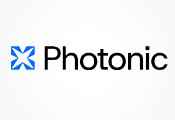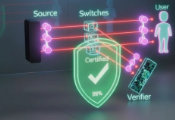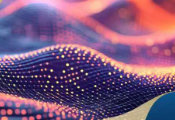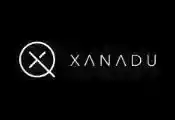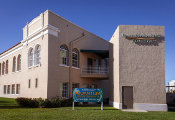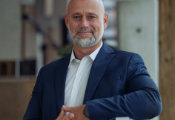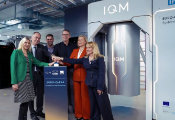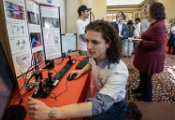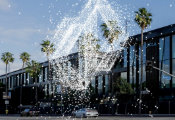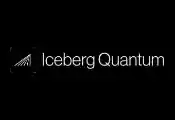Study by URI Physics Professor May Lead to Improved Networked Quantum Sensing
KINGSTON, R.I., October 28, 2025 -- Could global positioning systems become more precise and provide more accurate details on distances for users to get from point A to point B?
A study by University of Rhode Island assistant physics professor Wenchao Ge in collaboration with Kurt Jacobs, a physicist of quantum tech with the U.S. Army, that was recently published by the American Physical Society’s Physical Review Letters may lead to more enhanced quantum sensing and make such detection data more definitive.
Ge’s study, “Heisenberg-Limited Continuous-Variable Distributed Quantum Metrology with Arbitrary Weights” published by APS in September, looked at networked quantum sensing, which explores advanced sensor technology in an entangled network that could improve accuracy on how to measure, navigate and explore the world, such as by sensing changes in motion, and electric or magnetic fields. An entangled network is a non-classical network where the sensors cannot be described separately. Ge focused on whether and how the Heisenberg limit—the fundamental limit in quantum-enhanced sensing, allowing estimation with a precision beyond classical approaches—can be achieved.
The study found that a minimal setup can prepare a useful entangled network and achieve the Heisenberg limit through two single-mode quantum states. That setup, Ge says, can measure a function of “phase shifts,” which can translate to improved distance measurement or other complicated signals of interest.
In other words, if a person is using a GPS for travel, improved quantum sensitivity can lead to more precise information of a specific destination.
“It could make the GPS and time estimation more precise. This would affect the current GPS, which everyday use can tell you a location within 10 meters of a radius,” said Ge. “With this, it will predict the distance with pinpoint precision.”
Ge’s research focuses on theoretical quantum optics and quantum information. He explores fundamental limits allowed by quantum mechanics to access information (quantum sensing), transfer information (quantum communicating), and process information (quantum computing). He has now published more than 30 studies on quantum-related work.
This research of Ge is part of a three-year, $181,751 National Science Foundation grant he received in 2022 to explore nonclassical states for quantum metrology via quantum resource theory. Ge says that further development within the quantum metrology field will not only improve society’s understanding of the fundamental underpinnings of nature, but it will also advance national security and technology. The NSF project has provided research opportunities for graduate and undergraduate students, building a diverse workforce within quantum information science at URI.
Moving forward, Ge says researchers need to find optimal methods to extract information from quantum objects to better understand their sensitivity and determine what can be achieved.

